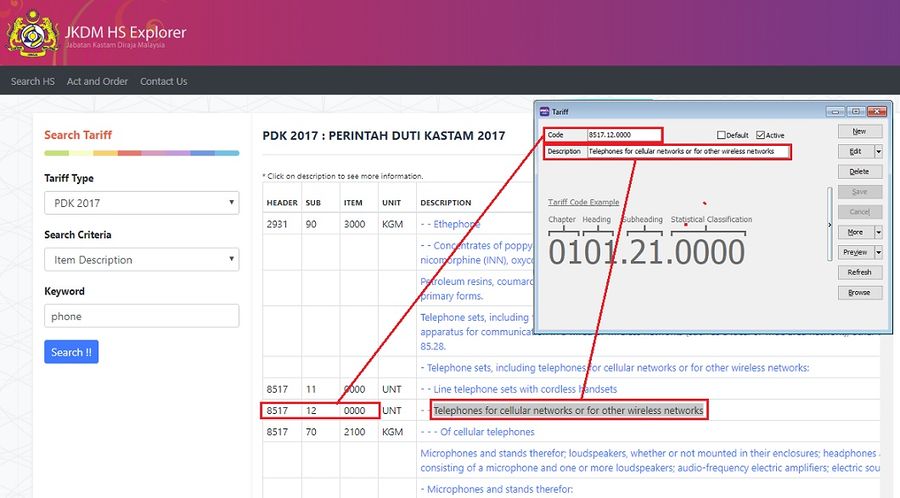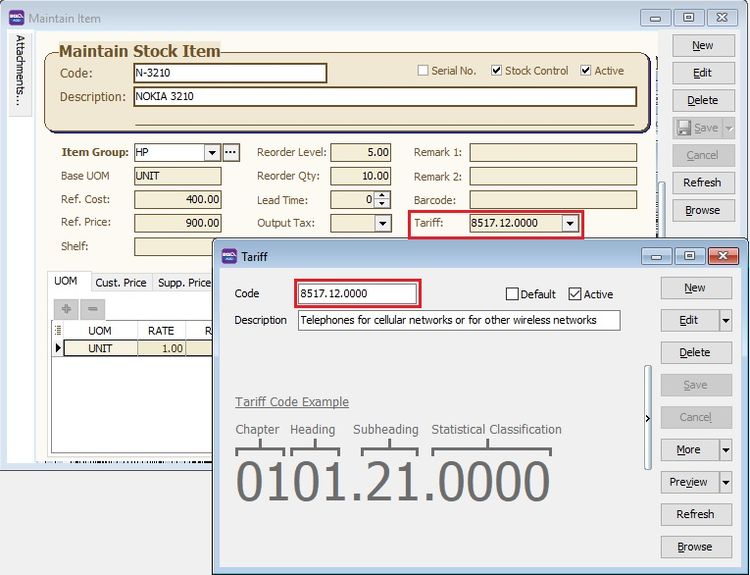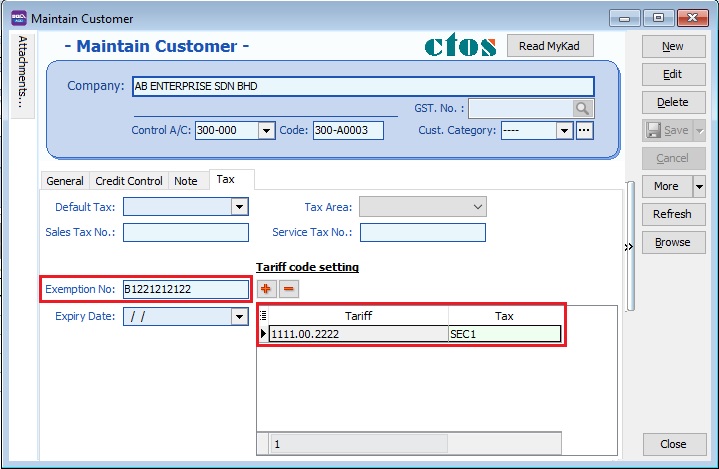| Line 14: | Line 14: | ||
:2. Assigned a tariff code to each items at [[Maintain Stock Item]] | :2. Assigned a tariff code to each items at [[Maintain Stock Item]] | ||
:[[File:SST-Tariff Code-02.jpg |750px]] | |||
<br /> | |||
:3. Exemption (under Schedule A, B, C) should set a tariff and tax code (SEA, SEB, SEC1, SEC2, SEC3, SEC4, SEC5) in [[Maintain Customer]] and [[Maintain Supplier]]. | :3. Exemption (under Schedule A, B, C) should set a tariff and tax code (SEA, SEB, SEC1, SEC2, SEC3, SEC4, SEC5) in [[Maintain Customer]] and [[Maintain Supplier]]. | ||
:[[File:SST-Tariff Code-03.jpg |750px]] | |||
<br /> | <br /> | ||
Revision as of 02:09, 13 February 2019
Introduction
- Tariff classification is a complex yet extremely important aspect of cross-border trading.
- Goods imported from or to Malaysia are classified by the Harmonized Tariff Schedule (HTS) or commonly referred to as HS Codes.
- The codes, created by World Customs Organization (WCO), categorize up to 5,000 commodity
- HS Codes are made of 6-digit numbers that are recognized internationally, though different countries can extend the numbers by two or four digits to define commodities at a more detailed level.
- Click here to search the tariff code list from Kastam system.
Quick Setup for Tariff Code
- 1. Create the tariff code applicable to your product at Maintain Tariff

- 2. Assigned a tariff code to each items at Maintain Stock Item

- 3. Exemption (under Schedule A, B, C) should set a tariff and tax code (SEA, SEB, SEC1, SEC2, SEC3, SEC4, SEC5) in Maintain Customer and Maintain Supplier.
